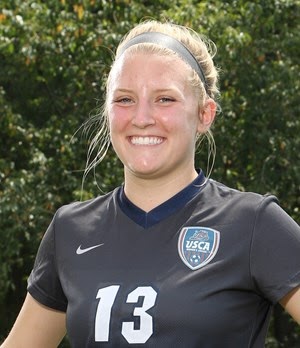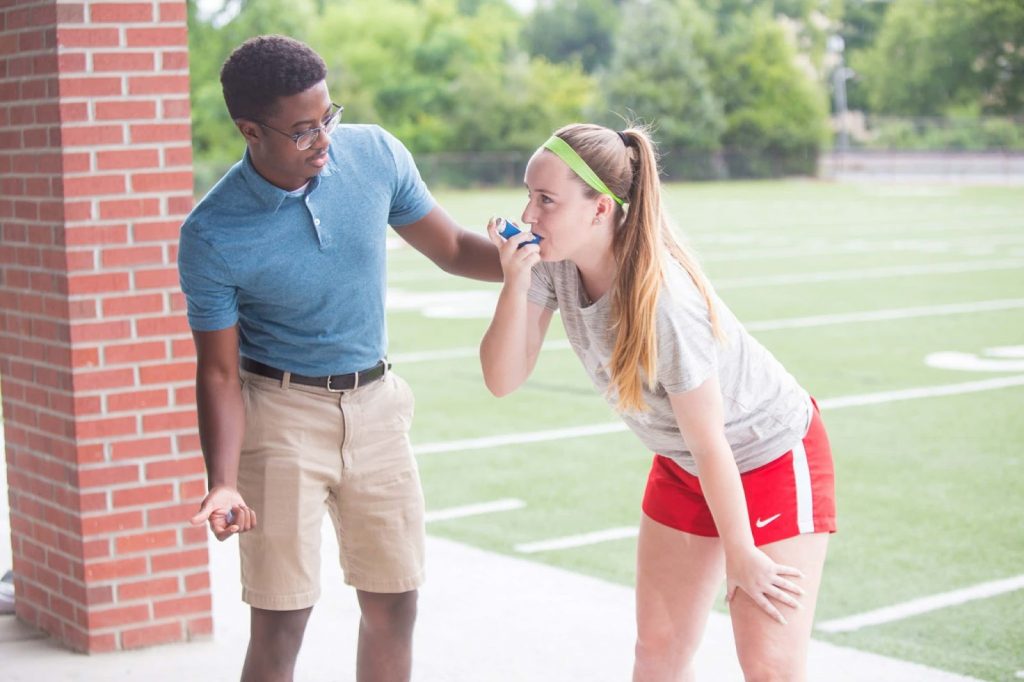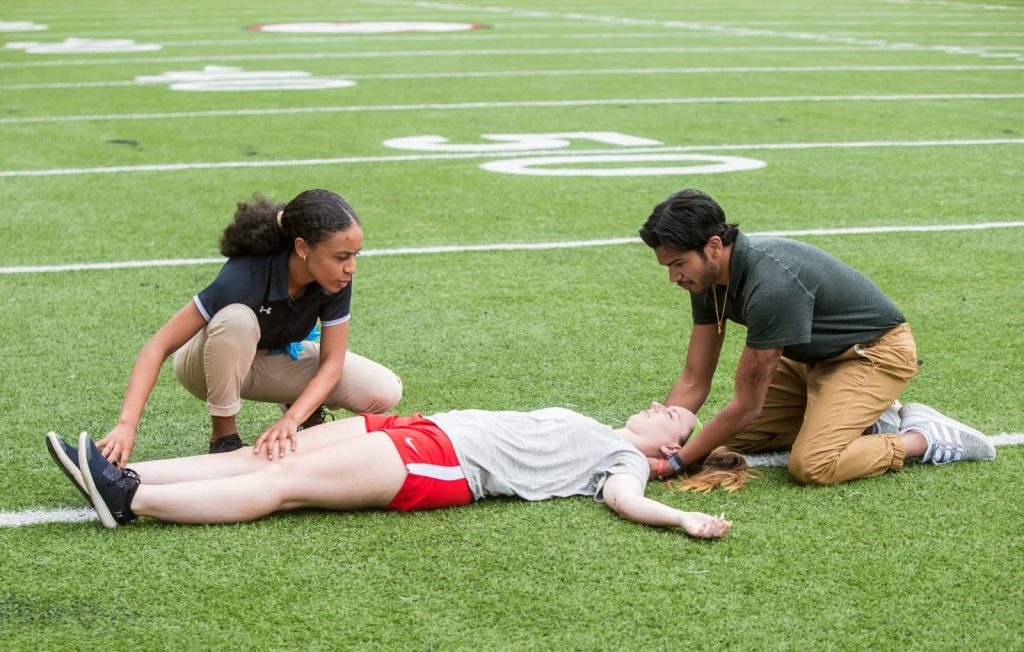
Willa Olson began playing soccer when she was just three years old. After 19 years with the sport, and a successful career as a Division I athlete at the University of South Carolina, she was looking for a new way to integrate her love of sports into her life.
After graduation, Olson wasn’t ready to give up the team aspect that soccer had given her. “I wanted to have a career that was centered around helping people and feeling like I was still a part of a team.” She remembered how much time she spent with her Athletic Trainers and how they were an integral part of her team’s success. Olson knew Athletic Training was the right path for her. “Having interacted with so many different Athletic Trainers, I knew I could use my experiences with my injuries to help other athletes as I get older and progress in my career.”
Becoming Familiar with ATs as a Student Athlete
Olson trained just as hard off the field as she did on it, working with her Athletic Trainers to make sure she was on track with her recovery. She reflected that her time with the Athletic Training staff each day was focused and intense.
“I was very intense as an athlete. In the Athletic Training facility, I was all down to business. I was trying to get better quickly. They knew I was not necessarily the chattiest or wanted to get involved in extra things other than my recovery. They understood that and we really worked well together.”

Realizing the Importance of the Athletic Trainer
Coming from an athletics program with only three Athletic Trainers on the staff, Olson saw and understood how hard they worked to make sure each individual program and athlete received the attention they deserved. Olson said, “there is oftentimes an underestimation of what an Athletic Trainer does. It is easy to forget the true importance of the role of the Athletic Trainers in the team whose responsibility it is to protect the lives of the athletes. It is more than just taping and putting a band-aid on someone.”
Olson shared that she is most excited about her Athletic Training career because every day she will be helping people. “You need to be caring. You need to be able to relate to individuals, even though they are different from you and are doing completely different things than you, to make sure you can give them the care they need and deserve.”
The Skills and Personality of an Effective Athletic Trainer
However, she understands that Athletic Trainers always need to be ready to jump in to help. “Situations can change at any moment, so you need to think quickly on your feet. You need to be calm, cool, and collected when you’re trying to think of what to do. One of the hardest challenges is being adaptable and applying the skills you have learned to make the right call and decide how you can best treat your patients.”
“Athletic Trainers need to have the ability to acknowledge how different everyone is and how different each injury is.” You may encounter multiple athletes with a similar injury, but you have to remember that each patient is an individual and they will be uniquely affected.
“As a future Athletic Trainer, I aspire to help everyone all the time and it may be hard to let the patients go when it is time. A lot of Athletic Trainers are super helpful and willing to offer help, but it can be difficult to know your boundaries in terms of how much time is too much and the fact you have other athletes of other sports.”

A Word of Advice to Future Athletic Training Students
It’s important to Olson to share advice to students considering the Athletic Training field. “While you make your own experience, it is extremely helpful to reach out to professors to learn about their stories. Each of the professors has unique experiences with different injuries, athletes, and protocols. Learning about their stories has been most interesting as I know what I might be in store for based on words of wisdom from their experience.”
Olson said that you can never be too prepared to be an Athletic Trainer. “Think of the foundational skills a lot of professionals apply on a daily basis. Take courses that train you to grasp the basics of such skills. One of my favorite classes is my emergency procedures course. We learn how to transport patients onto spine boards and stabilize their cervical spines, which is the kind of daily basic skills you see in lots of Athletic Trainers.”
“Lastly, if Athletic Training is something you want to do, just dive headfirst and go for it.”
